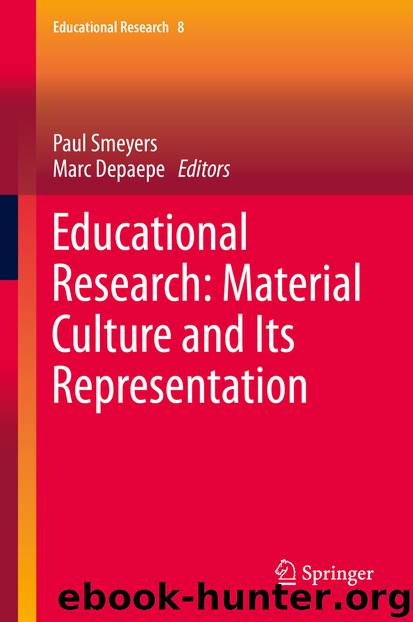Educational Research: Material Culture and Its Representation by Paul Smeyers & Marc Depaepe

Author:Paul Smeyers & Marc Depaepe
Language: eng
Format: epub
Publisher: Springer International Publishing, Cham
The examples I have discussed (which I hold paradigmatic for educational research nowadays) do pretty well on (a), (b), and (c), but do poorly and are even neglectful concerning (d). What does this point to? Although very few colleagues in educational research will admit it, I surmise that most of them are in fact embracing the presuppositions of positivism, logical positivism or logical empiricism. They pay lip-service to the traditional criticisms, they know how to speak politically correct about the limited nature of their own research, and they will grant everyone that value questions are always involved and that they have to pay attention to these, yet when they are pushed to make explicit what they think their own knowledge as experts is, then what one hears is nothing less than what may be labelled objective knowledge, which invokes one or other variation of the correspondence theory of truth in a rather naïve form. Though such a kind of educational research has been criticized, successfully one may say, and moreover logical empiricism (logical positivism and positivism) has been criticized, again successfully let me insist, it is as lively as ever.5 Why, one may ask is it so attractive, so much alive? The quite simple answer to this is surely that as it focuses exclusively (or at least predominantly) on referential meaning it is more satisfactory than other positions (which include other kinds of meaning) because it leaves (almost) no room for doubt (at least not once a particular theory has been identified including the concepts it works with). In epistemological terms this may be characterized as a kind of logical positivism (obviously, there are other kinds). It may be tempting to consider this kind of logical positivism as the only option for educational research and if so, this may come close to a particular version which has attracted considerable attention, i.e., close to the formulation it has been given by Ludwig Wittgenstein in his early (1921) work (Tractatus Logico-Philosophicus). Let us make abstraction for a moment of the fact that Wittgenstein himself and many of those who deal (have dealt) with his work vehemently deny that his position is a kind of logical positivism, it nevertheless has been labelled so. Indeed for Wittgenstein, ethics, aesthetics, religious beliefs etc. are crucially important, but he holds that they cannot be expressed in a meaningful language, they do not belong to the area of ‘nonsense’, but what they say cannot be said (cannot be put into words but only shown), they are deprived, bereft of meaning and thus lack sense. Clearly, Wittgenstein’s Tractatus if positivism at all, is not a crude but rather a very mild version of it. I will now draw attention to a number of the claims and arguments of his position. My over-all aim will be that even if one would embrace this stance to justify theoretically what it is that educational research is doing or can do nowadays—and I am focusing on the dominant kind of educational research, i.
Download
This site does not store any files on its server. We only index and link to content provided by other sites. Please contact the content providers to delete copyright contents if any and email us, we'll remove relevant links or contents immediately.
The Art of Coaching Workbook by Elena Aguilar(51160)
Trainspotting by Irvine Welsh(21643)
Twilight of the Idols With the Antichrist and Ecce Homo by Friedrich Nietzsche(18622)
Fangirl by Rainbow Rowell(9228)
Periodization Training for Sports by Tudor Bompa(8253)
Change Your Questions, Change Your Life by Marilee Adams(7759)
This Is How You Lose Her by Junot Diaz(6877)
Asking the Right Questions: A Guide to Critical Thinking by M. Neil Browne & Stuart M. Keeley(5758)
Grit by Angela Duckworth(5604)
Red Sparrow by Jason Matthews(5467)
Paper Towns by Green John(5177)
Room 212 by Kate Stewart(5105)
Ken Follett - World without end by Ken Follett(4723)
Housekeeping by Marilynne Robinson(4436)
The Sports Rules Book by Human Kinetics(4379)
Papillon (English) by Henri Charrière(4262)
Double Down (Diary of a Wimpy Kid Book 11) by Jeff Kinney(4261)
The Motorcycle Diaries by Ernesto Che Guevara(4089)
Exercise Technique Manual for Resistance Training by National Strength & Conditioning Association(4061)
